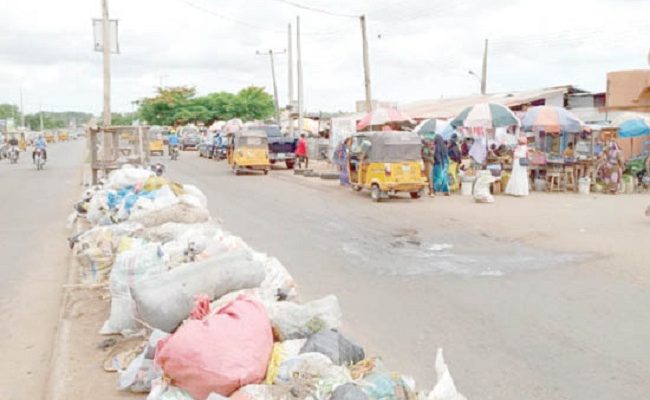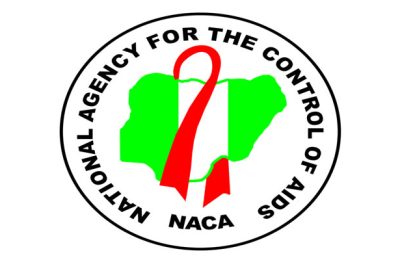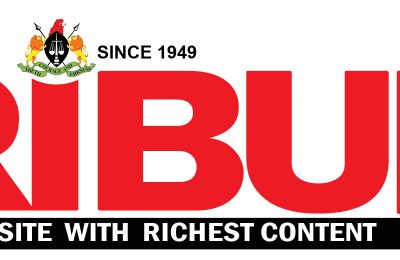
BIOLA AZEEZ visited markets in Ilorin, the capital of Kwara State, where traders are demanding improved returns that justify the taxes they pay to the state government.
Investigation has revealed that not less than 18 fire incidents have occurred in the last five years in different markets in Kwara State. The inferno left in its trail anguish, sorrow, losses and disappointment.

The head of department (HOD), media and publicity of the Kwara State Fire Service, Hassan Adekunle, on behalf of the director of the agency, Prince Falade Olumuyiwa, confirmed this with statistics.
In Omu Aran market, located in the Irepodun local government area of the state, goods worth millions of naira were lost during the fire incidents on December 23,2016,March 13,2017,March 27,2020.
In Ilorin metropolis, the state capital, Oja Tuntun (New market), Ilorin witnessed fire incident on January 23,2022 and November 22,2023 while the affected traders languished over the loss suffered in the incident.
At the Ipata Oloje market (vehicle spare parts market), Ilorin, goods estimated to be in the region of millions were burnt on January 29,2022,and December 26,2023 during the fire incident that occurred in the market.
Also, at the Olufadi market, Edun area, Ilorin on January 7,2020, fire destroyed goods worth millions of naira while the men of the state fire service could only help to reduce the loss with their presence.
Traders in the Ipata market, Ilorin suffered in the fire incident on June 3,2024.
In Offa, Offa Local Government Area of the state, where we have the ancient Owode market, fire incidents occurred on April 2, 2024, August 17, 2023, March 3, 2022, February 6, 2022, May 23, 2020, March 17, 2020, and October 9, 2018.
Speaking on behalf of the affected traders in the April 2 Owode market fire disaster this year in Offa, the Iyaloja-general of the market, Alhaja Idiat Yusuf, said that most of the traders were badly affected economically as goods worth several millions of naira were lost. “These people have nothing to fall back on due to the losses suffered.
“You know, this is Ramadan fasting period. Most of the traders don’t even have what to eat to break their fast. All their capital has gone. And this capital was sourced from banks, cooperative societies and other sources. More than 46 market stalls where they sell food items, clothes and so on, were burnt to ashes. So, we’re calling on the state government to compensate them individually to give them succour over their losses.”
At Bode Saadu Market in the Moro Local Government Area of the state, it was on February 9,2021 that the traders experienced a fire incident.
However, investigations revealed that most of these markets and others in the state have no fire service station located inside them, while the Mandate market, Ilorin, that was built many years ago with a fire service station inside it that time could no longer boast of a functional fire service point as it has become non-functional and desolate.
Speaking on the development, the head of department (HOD), media and publicity of the Kwara State Fire Service, Hassan Adekunle, said on behalf of the director of the agency, Prince Falade Olumuyiwa, that the state government plans to rebuild several major markets to meet international standards.
“Part of this redevelopment includes the strategic placement of fire stations within each market. These fire stations will be equipped with the latest firefighting equipment and staffed by trained professionals, ensuring a rapid response to any fire incidents. This initiative is not only aimed at enhancing market safety but also at protecting the livelihoods of traders and the economic well-being of the state,” he said.
To address the persistent issue of fire outbreaks in major markets across the state, he also said that the state fire service has implemented a multifaceted approach.
“Firstly, a comprehensive sensitisation programme has been launched, targeting all major markets in the state. This programme is designed to educate the general public on essential firefighting techniques and safety measures. It focuses on informing people about what actions to take in the event of a fire and how to prevent fire outbreaks from occurring in the first place. By conducting these educational sessions, the Fire Service aims to increase awareness and preparedness among market vendors and the broader community, ensuring that everyone knows how to respond effectively in emergency situations.”
While it is the responsibility of the state government to enhance safety in markets and protect livelihoods of traders and the economic well-being of the state, keen observers expressed the view that various taxes being paid by business people and individuals to government should be able to work for their welfare and business growth.
Traders in most of the markets, especially, those located in Ilorin metropolis, called on the concerned authorities to do more to justify taxes being remitted to the coffers of the state government.
They identified such areas of concern as multiple and high-rate taxation, hygiene and environmental sanitation, provision of amenities, among others.
Investigation also revealed that heaps of refuse and faeces welcome people to some of the markets in the state. Some youth, like load carriers or labourers, that sleep in the markets have been caught on several occasions littering shops and alleys in the markets with faeces in the dead of the night after the traders would have left.
While some concerned traders said that such actions have reduced, others said that it is still a usual occurrence in some of the markets. The traders, therefore, called for construction of more modern toilets to address the menace.
Abdulrasheed Olatunji and Musa Kannike are the chairman and vice chairman of the Mandate Market Ram, Goat, Sheep Sellers Association, respectively.
The executive committee of the association was inaugurated three years ago. The association pays about N120,000 personal income tax (PIT) per annum and another tax of about N35,000 to the Kwara Inland Revenue Service (KWIRS) coffers every year.
According to Olatunji and Kannike, each trader pays tax of an average of about N5,000 tax annually.
However, during festive periods like Sallah or Christmas periods, the state government, through its Ministry of Commerce and Business Innovation, also collects tax in form of tickets on each of the sheep that are brought to the market for sale. The traders said that the tax paid on each animal depends on it size. Between N500 and N1,000 tickets are sold as a form of tax collection on every cow butchered in the market on daily basis.
Members of the association have rules and guidelines regulating their trade. Thus, the people ensure compliance of members on tax payment and revenue generation into government coffers, the traders said.
“We know we’re under our government. So, we have to follow laid down laws and rules. And anyone that fails to comply with payment are made to face penalty.
“However, tax payment has no effect in our market here. For instance, upon our obligations to government and effort to make members comply in payment of taxes, we lack water and electricity supply.
“We tax ourselves to provide light here. This place was usually in darkness at nights before we provided solar-powered street lights that are even useful for government in the illumination of the main road here.
“We pay refuse collectors to dispose our wastes as the government refuse collectors say that they were instructed not to pack animal dung. Also, there’s no toilet here except we enter into the market where we pay N100.
“Our expectation is that taxes we pay should work for us. Or that there should be one amenity or the other we should be able to enjoy from government. But we are yet to get such.
“One assistance we hope to get from government is to lessen our losses suffered in recent death of about 40 of our cows due to food poisoning. We’re yet to get needed assistance we want on the incident.”
Mr Fola Okeyode is a tax expert. said that there are various types of taxes, including: Income tax: on an individual’s or business’s income or profits; Sales tax: Tax on goods and services sold; Property tax: Tax on real estate and personal property; Value-added tax (VAT): Tax on the value added to goods and services at each stage of production and distribution; Estate tax: Tax on the transfer of wealth when someone dies; Payroll tax: Tax on employers and employees to fund social security and other benefits.
Okeyode explained that taxes are used to fund various public goods and services, such as infrastructure like roads, bridges; education, healthcare, national defence, social welfare programmes, law enforcement and public safety.
“Business people, like individuals, are required to pay taxes for several reasons including, Representation: Paying taxes gives business owners a stake in the political process and a voice in how their tax money is spent; and Social responsibility: Paying taxes is seen as a civic duty and a responsibility to contribute to the well-being of society.”
It was gathered that traders in each shop in Mandate market pay N500 every month for environmental sanitation tax, another N500 for security. They also pay Personal Income Tax (PIT) while some others who use government land pay annual tax for it.
The managing consultant of one of the markets in Ilorin, Mandate market, Mr Mukhtar Baki, commended the state government for assisting traders through Kwara State Small Scale Investment Programme (KWASSIP) with grants called “owo isowo”, which he said were being distributed to the traders. According to the consultant, such gesture has helped to improve their trade, reduce unemployment and poverty.
He said that engagement of the consultancy firm helped to improve revenue generation, sanitation, and security in the market, adding that electricity supply has been restored to the market.
“The market had been in total darkness for about 10 years. We started April 2023. Sanitation in the market used to be a thing of serious worry and concern. People dumped refuse indiscriminately. There was nothing like consultancy or facility management since the market was established. And there was no payment for security, waste management etc. So, it was Herculean task and it took some time getting people to pay tax. Things have changed now as heaps of refuse had reduced.
“Yes, market environment outside is dirty because there is no access to dump refuse at the car park here. So, we encourage the state ministry of Environment to come in and assist so that spread of disease and epidemic would be checked.
“The issue on toilet is actually about attitude of some people who refused to pay N100 to use the toilets that are already put in place in the market. The N100 is meant for maintenance of the facility. Some people would not want to pay the N100 to use the toilets and make the environment clean and hygienic”, one of the traders said.
Baki, who said, “We do general sanitation in the market every Thursday and Saturday”, added that, “That’s twice in a week and about eight times every month”.
The consultant agreed that government needs to do more on issue of electricity provisions in the market, while he confirmed that some traders provided solar light stands for security purpose.
“We’ve tried our best. We’ve installed solar lights in some locations in the market. Those traders facing the main road is still a matter for the government. We’ll try to improve on it.”
On fire station in the market, the consultant said that effort was on to refurbish it.
He said, “We’ve sat together with the state Fire Service on that and they said that they don’t have budget for that. And that they cannot do anything outside their budget. On personnel, we even told them that we’ll provide personnel that would undergo training under the service. After the training they’ll be on ground 24/7 to function effectively. On provision of firefighting equipment and vehicles, they said they’ll have to write the state government for that. So, it’s a very long process. Meanwhile, we’ve appealed to our parent ministry, Ministry of Business, Innovation and Technology.”
Investigation also revealed that distortion had been made in the masterplan of major markets in the state, while government and its agencies had turned blind eye.
However, findings also revealed that almost all traders in the market are liable for this. It was gathered that they had done conversion of shops to different functions contrary to the laid down masterplan, a development which had made access to shops difficult for firefighting exercise.
According to Baki, “Some structures are not meant to be where they are though some of the affected owners got questionable approval from some government agencies. Those buildings have been developed without proper documentation. Some shops were converted to accommodation or warehouses. Some spaces have been blocked, discouraging traffic network and preventing thoroughfare. They are blocked and turned to shops while the owners of such property are making money from the illegality. Government is not generating a dime on those structures. They’ve also blocked drainages and by doing that causing flooding in some instances. They also extend shops beyond permitted space that could take even three shops. People, members of the general public, also need to wake up to their responsibility by doing the right thing. Everything is not about government responsibilities.”
A staff of the KWIRS, who sought anonymity, said that payment of PIT is different from security or environmental sanitation tax.
In an interview, the Babaloja General of Kwara State Marketers Association, Alhaji Abdulahi Saad, and the vice-chairperson of Iyaloja General of Kwara State, Alhaja Muibat Abdulraheem Olumo, commended marketers in the state for their cooperation on issue of tax payment.
Alhaji Saad said, “When issue of tax payment started in 2019 with establishment of the Kwara State Internal Revenue Service (KWIRS), the marketers were not paying. They were not actually new to the tax system because it was in place before but not as newly structured.
“So, we carried out a sensitisation programme and they started paying. KWIRS on its part reciprocated with community impact programme (CIP) to give back to the marketers in form of infrastructure development in about six markets located in the Kwara Central, Kwara South, and Kwara North districts of the state.”
He said that the state government, through the community impact programme of the Kwara State Internal Revenue Service (KWIRS), has tried to make tax work for marketers with provision of solar light, flood-control drainages, modern toilet with overhead tanks in some markets.
He mentioned markets such as Oja Tuntun, Mandate, Ago Market, and Alanamu Market, where the agency rebuilt burnt market stalls. Visits paid to these markets confirmed the assertion.
Speaking on newly introduced categorisation of tax payable by marketers, he explained that government has kicked against flat tax rate being paid by marketers.
“We were paying N2,500 per annum. But the government has said that marketers have to be categorised because they are not all equal. Those that should pay N5,000, N20,000 or more should be made to pay. That’s why some Igbo traders, under the Kwara State Igbo Traders Association (KWITA) protested the other time.
“We all know the hardship in the country is caused by the recent removal of oil subsidy. The removal has affected so many sectors of the economy. What affects markets affects the entire populace.
“But we want to also appeal to marketers to cooperate with the state government. Surely, government would provide a soft landing. Governor Abdulrahman Abdulrazaq has promised to continue to distribute palliatives. This may be in form of grants, food items, or something else in all the 16 local government areas of the state. Likewise, the wife of the governor.
“On issue of refuse disposal, the state government has said that free refuse disposal is for the less privileged and not for marketers that are making profit from their businesses. We’ve made market leaders to realise this.”
To achieve high and appreciable level of tax compliance, now and in the future, traders must see that the taxes they are paying to government are justifiably utilised for physical development in the markets, safety of their lives and property, as well as business growth and welfare purposes.
This story was produced with support from the Wole Soyinka Centre for Investigative Journalism (WSCIJ) under the Collaborative Media Engagement for Development Inclusivity and Accountability Project (CMEDIA) funded by the MacArthur Foundation.
Read Also: Plateau govt denies alleged budgeting of N3.9bn for official vehicles








